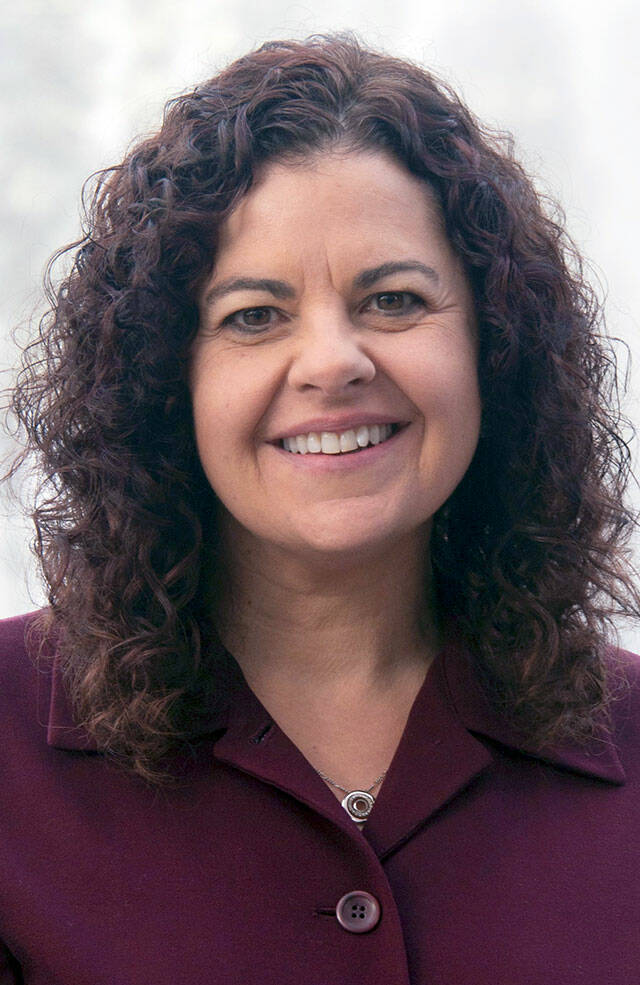PORT ANGELES — Creating connections with businesses, developing a strong relationship with the community and addressing declines in enrollment highlighted new Peninsula College President Suzanne Ames’ presentation to the Port Angeles Business Association at its Tuesday morning meeting.
Ames, who started in July, said her goal as she worked her way up through the administrative ranks of the community and technological college system in Washington state was always to become a community college president, specifically Peninsula College’s.
“I had my sights on a small college in a small town where it was the only college and where I could build relationships with the community and with the business community,” Ames said. “I wanted to have those community connections right at my fingertips.”
While the majority of students at Peninsula College still pursue an associate of arts (AA) degree as a prerequisite for transferring to a four-year institution, the school has been expanding its vocational and certificate programs for those seeking a fast-track career route and to meet local workforce demands.
“We have a new two-year paralegal AA program that came out of conversations from the legal community,” Ames said. “Next year we’ll have an AA degree in dental hygiene, and we’re working on a bachelor’s degree in K-8 education.”
A Running Start for Trades program, like the existing Running Start program that enables high school juniors and seniors to earn college credit at Peninsula College, will focus on such fields as welding and construction. Similarly, there is no cost to the student for tuition, books and fees.
The college is exploring offering a program in natural resources technical studies and a course in aluminum welding has been added in response to a demand for that skill from local boat manufacturers.
“Businesses can tell Peninsula College what they need, and we can train those workers,” Ames said.
Like colleges across the country, Peninsula College saw its enrollment drop over the past two years during the pandemic.
Ames said she believed the recent lifting of the campus mandate, boosting its technical and certificate programs and offering students more flexibility in how they want to receive instruction — in person, online or various combinations of the two — will lead to those numbers starting to climb.
Ames said that among the groups driving the drop in enrollment are men. Sixty percent of Peninsula College’ students are women, which tracks with national numbers.
“There is a concern about where the men are,” Ames said. “They aren’t going to college, they aren’t going into the trades and they aren’t going into the military.”
One reason high school students say they aren’t interested in pursing a higher education, Ames said, was that they weren’t convinced of its value.
In that respect, Peninsula College was a great investment, she said.
Full-time cost for a student living at home for the 2022-2023 school year is an estimated $5,772, which includes tuition, fees, books and supplies.
“There is more financial aid now than I’ve ever seen in my career,” Ames said. “A lot of the government aid from COVID went to students in the form of loans and grants. There were $921,000 in scholarships that came from the community — that’s local people investing in students.”
PABA member Jim Haguewood noted that one of the challenges facing Peninsula College was an “ivory tower vs. community” mindset that kept some people from not benefiting from programs that could potentially help them.
“They don’t know that Peninsula College is part of the answer for them getting jobs and training,” Ames said. “We can’t just wait for folks to come to us. We’ve got to get out into the community and be more proactive.”
________
Reporter Paula Hunt can be reached at paula.hunt@soundpublishing.com.
